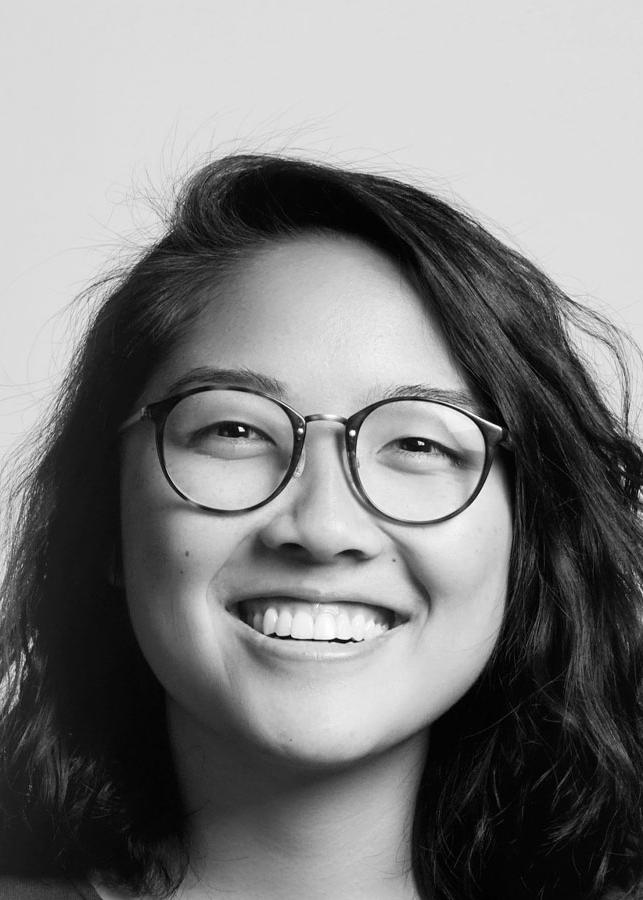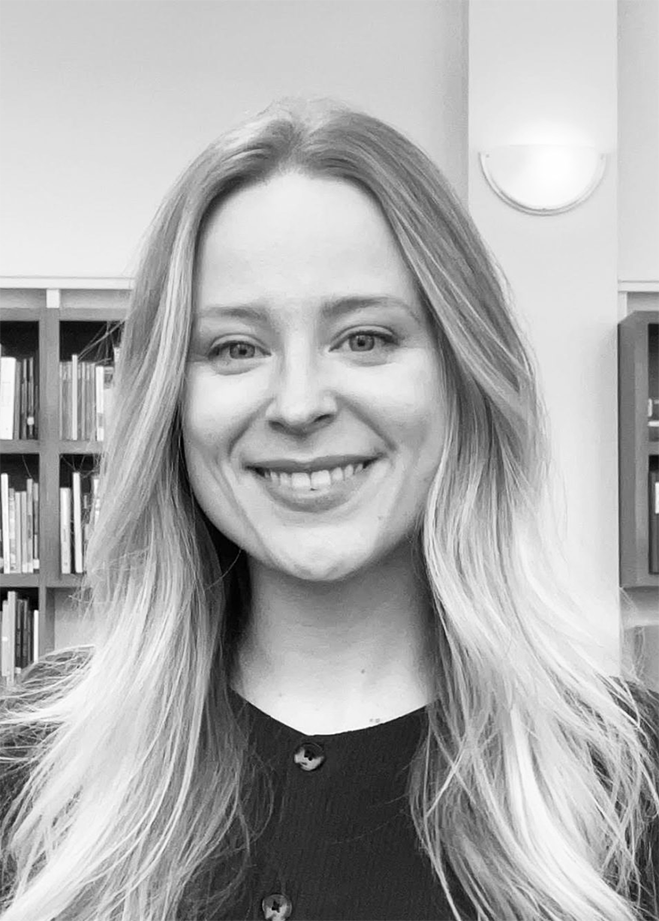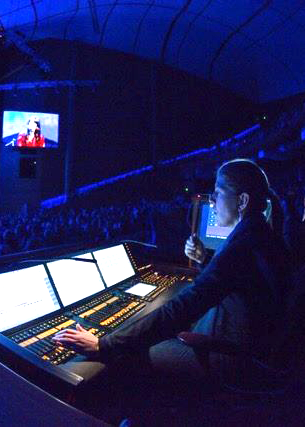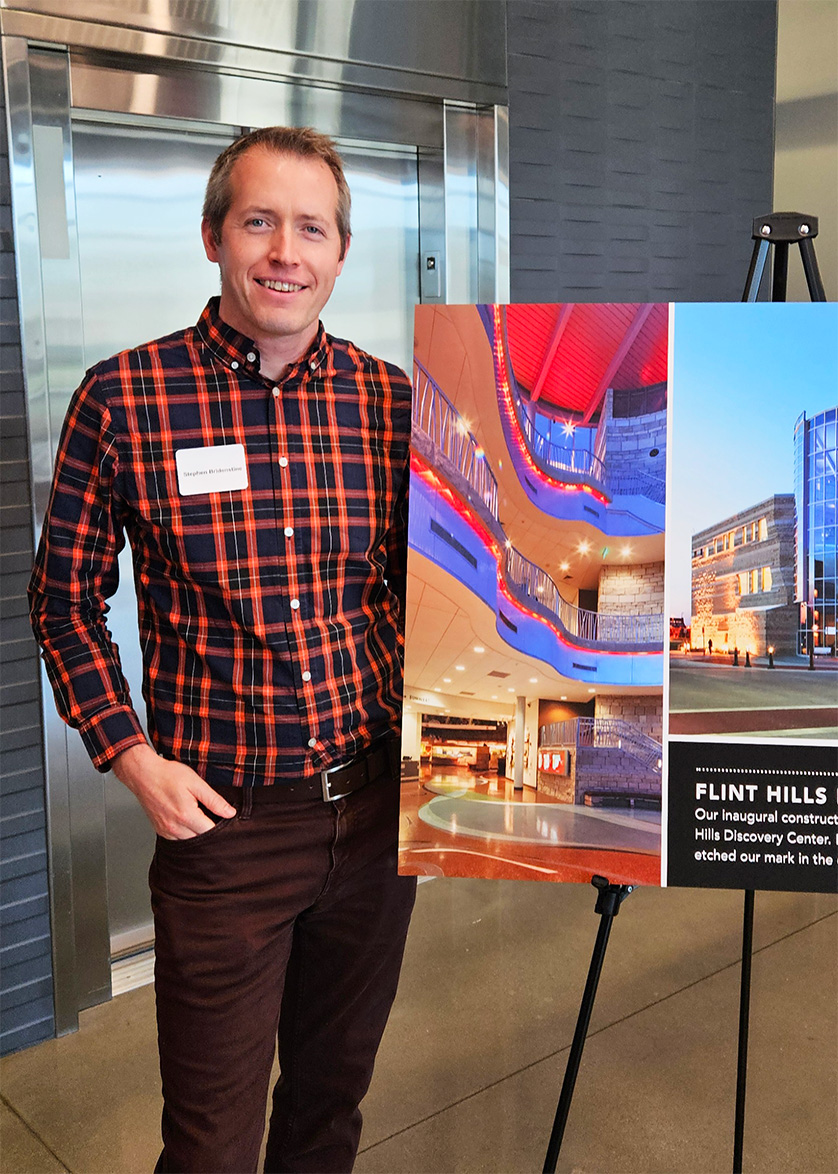Shanaya Kumar
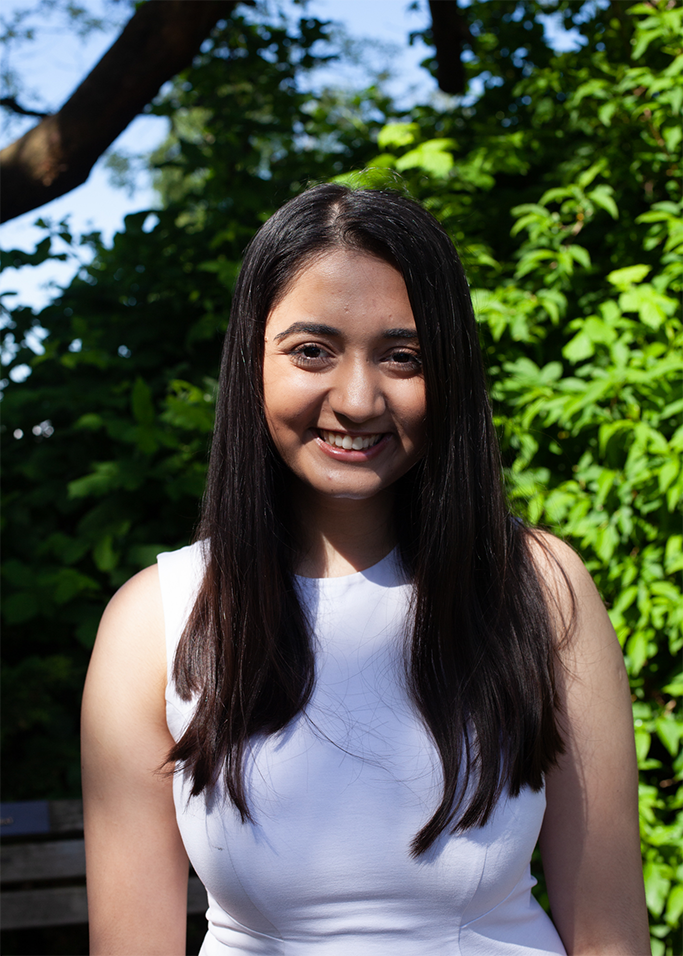
Why did you choose your program at UBC and what did you enjoy most about it?
I chose to pursue a Bachelor of Arts in Sociology at UBC because I was deeply interested in understanding the complexities of society—particularly how institutions shape human experiences.
My passion for exploring issues related to Indigenous history, settler institutions, human sexuality, health, and education led me to this field, as I wanted to critically analyze the ways in which societal systems have contributed to colonial harm.
What I enjoyed most about my program was the opportunity to engage in meaningful discussions, challenge dominant narratives, and apply my learning to real-world issues. I appreciated the interdisciplinary nature of sociology, which allowed me to explore diverse perspectives and connect theory to practice, especially in my work with Indigenous initiatives, equity, diversity, and inclusion (EDI) projects, and educational programming at UBC.
My studies not only deepened my critical thinking skills but also reinforced my commitment to fostering inclusion, equity, and social change.
What were some of your most meaningful experiences at UBC?
Some of my most meaningful experiences at UBC were those that allowed me to create impact, foster inclusion, and build community.
My work with CTLT Indigenous Initiatives, the Weaving Relations Program, and Indigenous Learning Pathways was particularly significant, as it gave me the opportunity to contribute to curriculum development that highlighted Indigenous perspectives and histories.
Organizing the New-to-UBC Connections Program was another defining experience, as I was able to help new faculty and staff feel welcomed and supported in their transition to UBC.
Beyond academics and professional work, I also found meaning in creative expression. Selling my artwork at the UBC Makers Market and performing poetry at UBC Slam allowed me to connect with others through art and storytelling. These experiences sparked my passion for fostering creative communities and led me to start my own company, The Bad Artist Collective. This venture was inspired by my desire to support emerging artists and provide a platform for people to explore their creative expression without fear of judgment. It has been incredibly fulfilling to see the ways in which art can bring people together and create space for healing and self-reflection.
Receiving the Faculty of Arts International Student Award for two consecutive years, and also the International Community Achievement Scholarship, further validated my efforts in fostering inclusion and engagement.
These experiences collectively shaped my time at UBC, reinforcing my passion for education, equity, and the arts, and encouraging me to build a business that embodies these values.
What choices did you make at UBC that contributed to your career success / journey?
At UBC, I made several key decisions that significantly shaped my career. My choice to study sociology allowed me to deeply explore EDI issues, particularly around Indigenous history and colonialism. This foundation directly influenced my career, especially in the areas of program development and community engagement.
I also strategically sought out leadership roles and co-curricular opportunities which provided hands-on experience in program management and event coordination. These experiences gave me practical skills and reinforced my passion for inclusive education.
Additionally, engaging with art and creative expression led me to create my own company. This choice helped me align my creative pursuits with my desire to build community and support emerging artists.
Finally, pursuing a Work Learn role with UBC Human Resources gave me valuable exposure to human resources and EDI initiatives, which contributed to my professional growth. Collectively, these decisions helped shape my career trajectory and fueled my commitment to social impact.
What was your first job after graduation and what other jobs did you have before your current position?
After graduation, my first job was as a project assistant with UBC Human Resources. I continued in this role on a part-time basis after completing my Work Learn term with the same department. In this position, I supported initiatives related to Indigenous perspectives and EDI projects, and I played a key role in organizing professional development workshops for UBC employees. This experience allowed me to further refine my skills in program coordination, community engagement, and event management.
Following my time at UBC, I worked with a marketing agency where I developed expertise in branding, content creation, and campaign strategy. This strengthened my communication skills and ability to work within diverse teams.
My most recent and impactful venture has been founding The Bad Artist Collective, where I provide therapeutic art workshops for employees at UBC, graduate students, and HR teams from other organizations.
These workshops are designed to foster mental health and emotional well-being through art. I focus on using creative self-expression to help individuals manage stress, reflect on their personal experiences, and build resilience in the workplace. By integrating therapeutic art into corporate wellness, I aim to create a space for healing, personal growth, and community-building, helping employees reconnect with themselves and cultivate a sense of balance and well-being in their professional lives.
Is your current career path as you originally intended? What challenges did you face in launching your career?
My current career path has evolved in ways I hadn’t originally planned, but it aligns closely with my passion for community engagement, education, and creative expression. Initially, I thought I would follow a more traditional route in program management and EDI work, potentially in higher education or the corporate sector.
However, as I gained experience across human resources, marketing, and my involvement with various Indigenous initiatives, I realized how deeply fulfilling it was to integrate my love for art and mental health into my professional journey. This led me to launch The Bad Artist Collective, where I now blend my expertise in program coordination with therapeutic art practices to foster wellness in corporate environments.
One of the biggest challenges I faced in launching my career was navigating the uncertainty of entrepreneurship while maintaining the confidence to pursue a path that wasn’t traditionally “secure.”
Transitioning from structured roles to launching my own business required a lot of self-doubt management, risk-taking, and figuring out how to blend my creative passion with the practicalities of running a business. Balancing the demands of starting a company while continuing to grow in corporate wellness and art has been challenging but ultimately rewarding.
Another challenge I’ve faced has been building credibility in a new space. While I had experience in program coordination and community engagement, moving into therapeutic art required me to educate myself further, build a network, and demonstrate the value of combining mental health and art therapy in corporate wellness.
Despite these obstacles, my deep passion for helping others heal through creativity has been a powerful motivator. Overcoming these challenges has ultimately led me to a fulfilling career path that I hadn’t originally envisioned, but feels deeply aligned with my values and strengths.
What do you like about your current job and what do you find challenging? How does it relate to your degree?
What I like most about my current job is the ability to combine my passions for creativity, community building, and mental health. Through The Bad Artist Collective, I get to create meaningful, therapeutic art workshops that support employees’ well-being and personal growth, all while fostering a sense of belonging and connection within the workplace.
I find it incredibly rewarding to see the healing power of art and how it helps people manage stress, reflect on their emotions, and improve their overall mental health. The freedom and flexibility to design workshops that integrate art therapy with wellness is deeply fulfilling, as it aligns with my personal values of emotional expression and cultural healing.
There are challenges that come with the complexities of running a business and maintaining a balance between my creative and professional responsibilities. Building a sustainable business model that continues to grow while managing client expectations, marketing, and networking can be overwhelming at times. Additionally, because my services are somewhat niche, it takes consistent effort to educate people about the benefits of therapeutic art in corporate wellness. This can sometimes feel slow.
My sociology degree is highly relevant to what I currently do, as it provided me with the framework to understand and address social issues, particularly those around equity, diversity, and mental health.
The critical thinking and research skills I developed through my studies directly inform how I approach program development and community outreach. Specifically, focusing on Indigenous history and colonialism within my studies informed the culturally sensitive and inclusive approach I take in my workshops.
My degree also helped me develop an understanding of social structures and human behaviour. This allows me to design more effective and relevant wellness initiatives that resonate with people from diverse backgrounds.
From your experience, what has been the value of having an Arts degree?
Having an Arts degree, particularly in sociology, has been incredibly valuable in shaping both my personal and professional life.
One of the greatest benefits of an Arts degree is the critical thinking and analytical skills it provides. The abilities to assess situations, understand various social dynamics, and approach problems from different perspectives have been huge assets in my career, especially in roles that require community engagement and program development.
In my work at UBC Human Resources and with The Bad Artist Collective, my degree has helped me navigate complex cultural, social, and mental health issues. The sociological insights I gained throughout my studies inform the inclusive frameworks I use when designing programs or workshops, particularly in the areas of EDI and Indigenous initiatives. They have also enhanced my ability to understand diverse needs and challenges, whether I’m working with students, faculty, or corporate clients.
Moreover, my Arts degree encouraged a deep appreciation for human connection and the emotional aspects of life, something that has been especially relevant in my transition to offering therapeutic art workshops. The skills I honed in research, communication, and writing have helped me build connections with various communities and stakeholders, whether it be through crafting proposals, creating educational content, or facilitating workshops.
Ultimately, my Arts degree provided me with a strong foundation in human behaviour, social justice, and creative problem-solving. This foundation continues to serve me as I navigate a career that blends social impact, mental health, and creative expression.
What advice would you give to students and alumni interested in breaking into your industry?
To break into fields like corporate wellness, program coordination, and creative entrepreneurship, leverage your unique skills and passions, network actively, and start by gaining relevant experience in related roles.
Be open to learning continuously through formal education, workshops, or mentorship, and don’t shy away from small beginnings. Stay adaptable, embrace challenges, and be passionate about what you do—authentic enthusiasm is key to building credibility and success.
Find mentors who can guide you through obstacles and always stay true to your values. Resilience and persistence are crucial in navigating an emerging career path.
What advice would you give your graduating self?
I would tell myself to trust the process and not to rush. There’s no need to have everything figured out right away. Explore different opportunities, be open to unexpected paths, and allow yourself the time to grow both personally and professionally.
I’d remind myself to embrace challenges as opportunities for learning and to not fear failure, because it’s all part of the journey. Also, I’d encourage myself to lean into passions and interests, even if they feel unconventional, because they might lead to the most fulfilling opportunities.
Lastly, I’d advise myself to build strong networks early on and to ask for help. Mentors, peers, and support systems can make all the difference.
Shanaya Kumar



Why did you choose your program at UBC and what did you enjoy most about it?
I chose to pursue a Bachelor of Arts in Sociology at UBC because I was deeply interested in understanding the complexities of society—particularly how institutions shape human experiences.
My passion for exploring issues related to Indigenous history, settler institutions, human sexuality, health, and education led me to this field, as I wanted to critically analyze the ways in which societal systems have contributed to colonial harm.
What I enjoyed most about my program was the opportunity to engage in meaningful discussions, challenge dominant narratives, and apply my learning to real-world issues. I appreciated the interdisciplinary nature of sociology, which allowed me to explore diverse perspectives and connect theory to practice, especially in my work with Indigenous initiatives, equity, diversity, and inclusion (EDI) projects, and educational programming at UBC.
My studies not only deepened my critical thinking skills but also reinforced my commitment to fostering inclusion, equity, and social change.
What were some of your most meaningful experiences at UBC?
Some of my most meaningful experiences at UBC were those that allowed me to create impact, foster inclusion, and build community.
My work with CTLT Indigenous Initiatives, the Weaving Relations Program, and Indigenous Learning Pathways was particularly significant, as it gave me the opportunity to contribute to curriculum development that highlighted Indigenous perspectives and histories.
Organizing the New-to-UBC Connections Program was another defining experience, as I was able to help new faculty and staff feel welcomed and supported in their transition to UBC.
Beyond academics and professional work, I also found meaning in creative expression. Selling my artwork at the UBC Makers Market and performing poetry at UBC Slam allowed me to connect with others through art and storytelling. These experiences sparked my passion for fostering creative communities and led me to start my own company, The Bad Artist Collective. This venture was inspired by my desire to support emerging artists and provide a platform for people to explore their creative expression without fear of judgment. It has been incredibly fulfilling to see the ways in which art can bring people together and create space for healing and self-reflection.
Receiving the Faculty of Arts International Student Award for two consecutive years, and also the International Community Achievement Scholarship, further validated my efforts in fostering inclusion and engagement.
These experiences collectively shaped my time at UBC, reinforcing my passion for education, equity, and the arts, and encouraging me to build a business that embodies these values.
What choices did you make at UBC that contributed to your career success / journey?
At UBC, I made several key decisions that significantly shaped my career. My choice to study sociology allowed me to deeply explore EDI issues, particularly around Indigenous history and colonialism. This foundation directly influenced my career, especially in the areas of program development and community engagement.
I also strategically sought out leadership roles and co-curricular opportunities which provided hands-on experience in program management and event coordination. These experiences gave me practical skills and reinforced my passion for inclusive education.
Additionally, engaging with art and creative expression led me to create my own company. This choice helped me align my creative pursuits with my desire to build community and support emerging artists.
Finally, pursuing a Work Learn role with UBC Human Resources gave me valuable exposure to human resources and EDI initiatives, which contributed to my professional growth. Collectively, these decisions helped shape my career trajectory and fueled my commitment to social impact.
What was your first job after graduation and what other jobs did you have before your current position?
After graduation, my first job was as a project assistant with UBC Human Resources. I continued in this role on a part-time basis after completing my Work Learn term with the same department. In this position, I supported initiatives related to Indigenous perspectives and EDI projects, and I played a key role in organizing professional development workshops for UBC employees. This experience allowed me to further refine my skills in program coordination, community engagement, and event management.
Following my time at UBC, I worked with a marketing agency where I developed expertise in branding, content creation, and campaign strategy. This strengthened my communication skills and ability to work within diverse teams.
My most recent and impactful venture has been founding The Bad Artist Collective, where I provide therapeutic art workshops for employees at UBC, graduate students, and HR teams from other organizations.
These workshops are designed to foster mental health and emotional well-being through art. I focus on using creative self-expression to help individuals manage stress, reflect on their personal experiences, and build resilience in the workplace. By integrating therapeutic art into corporate wellness, I aim to create a space for healing, personal growth, and community-building, helping employees reconnect with themselves and cultivate a sense of balance and well-being in their professional lives.
Is your current career path as you originally intended? What challenges did you face in launching your career?
My current career path has evolved in ways I hadn’t originally planned, but it aligns closely with my passion for community engagement, education, and creative expression. Initially, I thought I would follow a more traditional route in program management and EDI work, potentially in higher education or the corporate sector.
However, as I gained experience across human resources, marketing, and my involvement with various Indigenous initiatives, I realized how deeply fulfilling it was to integrate my love for art and mental health into my professional journey. This led me to launch The Bad Artist Collective, where I now blend my expertise in program coordination with therapeutic art practices to foster wellness in corporate environments.
One of the biggest challenges I faced in launching my career was navigating the uncertainty of entrepreneurship while maintaining the confidence to pursue a path that wasn’t traditionally “secure.”
Transitioning from structured roles to launching my own business required a lot of self-doubt management, risk-taking, and figuring out how to blend my creative passion with the practicalities of running a business. Balancing the demands of starting a company while continuing to grow in corporate wellness and art has been challenging but ultimately rewarding.
Another challenge I’ve faced has been building credibility in a new space. While I had experience in program coordination and community engagement, moving into therapeutic art required me to educate myself further, build a network, and demonstrate the value of combining mental health and art therapy in corporate wellness.
Despite these obstacles, my deep passion for helping others heal through creativity has been a powerful motivator. Overcoming these challenges has ultimately led me to a fulfilling career path that I hadn’t originally envisioned, but feels deeply aligned with my values and strengths.
What do you like about your current job and what do you find challenging? How does it relate to your degree?
What I like most about my current job is the ability to combine my passions for creativity, community building, and mental health. Through The Bad Artist Collective, I get to create meaningful, therapeutic art workshops that support employees’ well-being and personal growth, all while fostering a sense of belonging and connection within the workplace.
I find it incredibly rewarding to see the healing power of art and how it helps people manage stress, reflect on their emotions, and improve their overall mental health. The freedom and flexibility to design workshops that integrate art therapy with wellness is deeply fulfilling, as it aligns with my personal values of emotional expression and cultural healing.
There are challenges that come with the complexities of running a business and maintaining a balance between my creative and professional responsibilities. Building a sustainable business model that continues to grow while managing client expectations, marketing, and networking can be overwhelming at times. Additionally, because my services are somewhat niche, it takes consistent effort to educate people about the benefits of therapeutic art in corporate wellness. This can sometimes feel slow.
My sociology degree is highly relevant to what I currently do, as it provided me with the framework to understand and address social issues, particularly those around equity, diversity, and mental health.
The critical thinking and research skills I developed through my studies directly inform how I approach program development and community outreach. Specifically, focusing on Indigenous history and colonialism within my studies informed the culturally sensitive and inclusive approach I take in my workshops.
My degree also helped me develop an understanding of social structures and human behaviour. This allows me to design more effective and relevant wellness initiatives that resonate with people from diverse backgrounds.
From your experience, what has been the value of having an Arts degree?
Having an Arts degree, particularly in sociology, has been incredibly valuable in shaping both my personal and professional life.
One of the greatest benefits of an Arts degree is the critical thinking and analytical skills it provides. The abilities to assess situations, understand various social dynamics, and approach problems from different perspectives have been huge assets in my career, especially in roles that require community engagement and program development.
In my work at UBC Human Resources and with The Bad Artist Collective, my degree has helped me navigate complex cultural, social, and mental health issues. The sociological insights I gained throughout my studies inform the inclusive frameworks I use when designing programs or workshops, particularly in the areas of EDI and Indigenous initiatives. They have also enhanced my ability to understand diverse needs and challenges, whether I’m working with students, faculty, or corporate clients.
Moreover, my Arts degree encouraged a deep appreciation for human connection and the emotional aspects of life, something that has been especially relevant in my transition to offering therapeutic art workshops. The skills I honed in research, communication, and writing have helped me build connections with various communities and stakeholders, whether it be through crafting proposals, creating educational content, or facilitating workshops.
Ultimately, my Arts degree provided me with a strong foundation in human behaviour, social justice, and creative problem-solving. This foundation continues to serve me as I navigate a career that blends social impact, mental health, and creative expression.
What advice would you give to students and alumni interested in breaking into your industry?
To break into fields like corporate wellness, program coordination, and creative entrepreneurship, leverage your unique skills and passions, network actively, and start by gaining relevant experience in related roles.
Be open to learning continuously through formal education, workshops, or mentorship, and don’t shy away from small beginnings. Stay adaptable, embrace challenges, and be passionate about what you do—authentic enthusiasm is key to building credibility and success.
Find mentors who can guide you through obstacles and always stay true to your values. Resilience and persistence are crucial in navigating an emerging career path.
What advice would you give your graduating self?
I would tell myself to trust the process and not to rush. There’s no need to have everything figured out right away. Explore different opportunities, be open to unexpected paths, and allow yourself the time to grow both personally and professionally.
I’d remind myself to embrace challenges as opportunities for learning and to not fear failure, because it’s all part of the journey. Also, I’d encourage myself to lean into passions and interests, even if they feel unconventional, because they might lead to the most fulfilling opportunities.
Lastly, I’d advise myself to build strong networks early on and to ask for help. Mentors, peers, and support systems can make all the difference.
